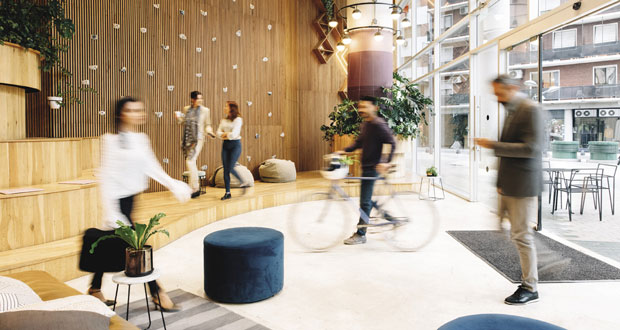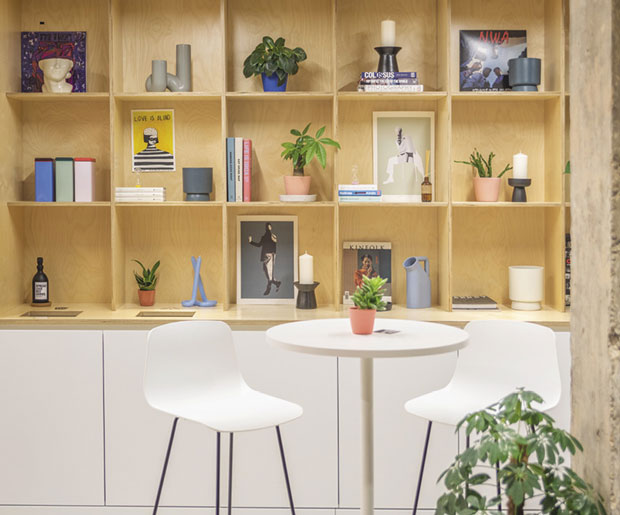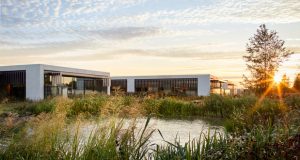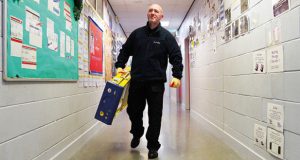HYBRID WORKPLACE
While sustainability is an enduring concern, currently one of the most pressing issues for FMs is in managing hybrid work patterns and crucially, making the workplace an inclusive space for workers whether physically present or working from home.
Says Marmot: “The key issue is how you match individual and corporate needs. The ways in which we work are part of a complicated, interwoven mix of personal, social and organisational needs and we can’t solve any one bit of it without affecting some of the rest.
“We know that people want to be with people, we work better that way, we’re biologically programmed to live with other people, and would not have survived as a species without working in groups. Office-based, intellectual work spans just a short moment in history compared with who we humans actually are, with all of our biological needs as well as all our social needs. This means it is incredibly complex to make any big changes, yet we’ve seen that the pandemic made us do many sorts of things we weren’t used to and didn’t even know we had to know.
“You need to consider the needs of the individual, their organisation and the individual team to make it all work together. This means the sort of resetting we’re now doing is going to take a very long time until we’re good at solutions for all of those elements, such as being skilled at mixing the people who are present in meetings with those who are remote. I’m impressed with some of the technologies emerging, such as cameras that track people within a room, as currently there is a lot of inequality in a hybrid meeting as to who is noticed and who can participate.”
The other major consequence of the pandemic and the resulting rise of hybrid working is a reappraisal of both the purpose and design of the workplace as more of a place for collaboration than for individual focused work.
Along with workplaces, learning spaces and cultural facilities, especially libraries, are a special focus for Professor Marmot who says there has already been something of a revolution in how they’re used. She cites as an example the UCL Student Centre which doesn’t feature any books but provides a variety of study spaces, including spaces for group work for students and staff.
“Solo focused work is still a key demand in libraries, but if we look at university libraries, how you learn as a student includes lectures, classes and what you read, but a lot of your learning is social. Unfortunately, we aren’t very good in workspaces yet at articulating the differences of needs and giving people the flexibility to work wherever, whenever, however. Also, most work you do for an organisation is within teams, or across teams with other colleagues, and that differs from the academic environment where students have a greater level of individual autonomy and can more readily choose to work in various types of team space, or solo space.
“But the sense of belonging within an organisation, forged by eating together, having a cup of coffee together, catching up when bumping into colleagues in shared spaces like the stairs, is really something that we’re still learning to value as part of new ways of working.”






